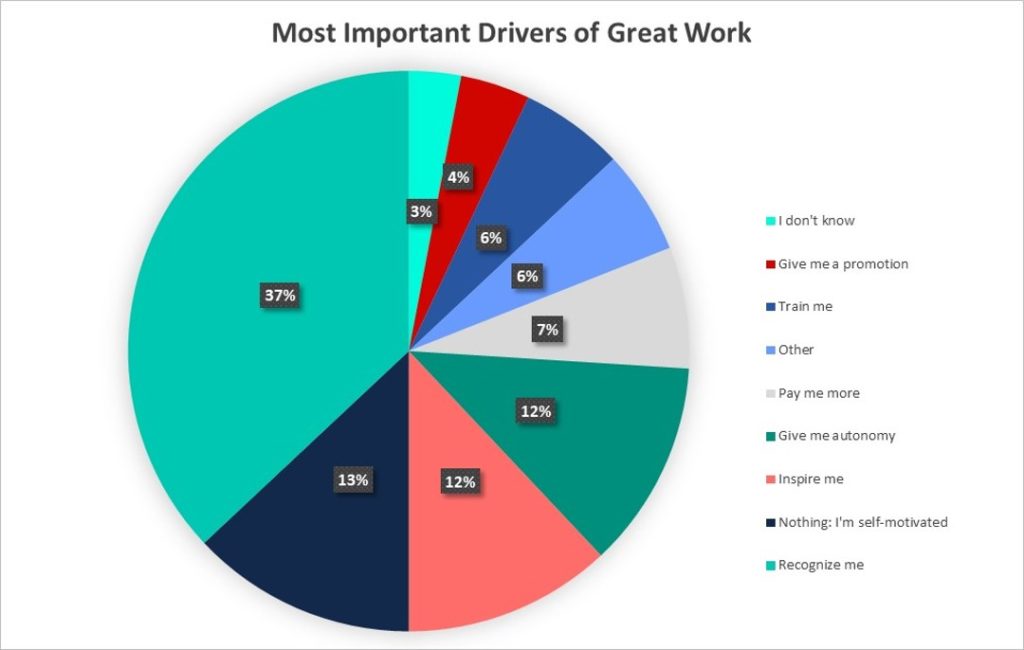Why words of encouragement are important way beyond the workplace
“The deepest principle of human nature
is a craving to be appreciated.”
– William James, Philosopher and psychologist
Look up the terms ‘appreciation’, ‘gratitude’ or ‘encouragement in the workplace” on the internet and you’ll find these all tend to be linked – through endlessly re-written articles – to the overworked word “productivity”… better known as doing more for less to build the bottom line.
But, in fact, the importance of “appreciation” to humankind – and to many of the other intelligent inhabitants of our planet – goes far deeper and wider than that. William James, often known as ‘the father of psychology in the USA’ considered it to be “the deepest principle of human nature.” That’s a big claim.
But it’s easy to see why. From the time we’re babies, laying down the first rules of engagement with our families, we recognise phrases like “good try”, “well done”, “great effort, ” “good boy/girl” – and others similar – along with the kisses and cuddles that usually accompany them – as a reward to strive for.
We hold tight to this pleasurable little cause and effect scenario and – even in our baby brains – resolve to try even harder next time there’s a chance to be praised. (Primates, other animals, birds and fish all follow the same learning curve!)
So deeply is the need for approval ingrained in the human psyche that we carry it all our lives. It rarely goes away. Many business and political leaders – among which group are the most ego centric individuals in society – often consciously diminish its importance. Both to them and to others.
But whether they accept it or not, being appreciative of others – and knowing how to show it – is fundamental behaviour and vital to peace and (yes) productivity, at home, socially and at work.
But what is this big ‘it’ that seemingly rules our lives?
Entrepreneur Todd Smith puts it this way; “If we are honest with ourselves, we all want and need to feel valued for who we are and recognized for our contributions and accomplishments. It’s important for us to know that we have made a difference in someone’s life.”
“If a person takes the time to express their heart-felt appreciation for something we have done, it boosts our spirit, passion, and purpose. It builds our self-confidence, self-esteem and our entire self-image. It gives us energy and motivation to work harder and do more.”
Knowing that this has been endorsed by various research studies around the world, why would you even consider not showing your appreciation to the staff you manage in the workplace?
Especially when it’s so simple.
Showing appreciation is a two-way street.
Empty compliments, gushing comments and praise simply don’t cut it. In short, insincerity sucks!
But when you thank someone with a smile or offer genuine words of praise and/or encouragement for work especially well done, a hard task mastered, for their generosity of time and effort, after they’ve extended a kindness or for effort beyond the expected, you make them feel valued and appreciated. In short, you make their day. And – as you do – as science tells us – you actually improve your own life experience. Every time you express gratitude, you enrich your own life. Not a bad deal?
Once they’ve been rewarded with authentic praise and appreciation, most adults – just as they did as babies – will try even harder to please next time the opportunity presents. So- whether you’re a fan of the laws of the universe or not – you will start to find that “what goes around, comes around.” And if that happens to be consideration and appreciation, then life is about to get so much better.
Todd Smith calls appreciation “a free form of currency”. He says: “People will do more for recognition than they will for money. If you are in a leadership position, remember that people will work harder and do more if they know they will be recognized for their accomplishments. Show them you care about their efforts and they will be loyal to you, even if better opportunities come their way.”
And here’s the research to prove it.
The Aon 2018 Trends in Global Employee Engagement survey, conducted in 1,000 companies employing 8 million people globally, showed rewards and recognition as “the strongest driver of engagement,” and that recognition for contributions (apart from pay and benefits) was the key factor in the rewards and recognition component.
The Boston Consulting Group conducted an online global study of 200,000 employees from 189 countries in 2014, finding that “Globally, the most important single job element for all people is appreciation for their work.”
Appreciation was the top factor for happiness on the job, ahead of 25 other factors, and was highlighted in the findings as an indication of “the growing importance of ‘softer’ factors.”
A Cicero study in 2015 found that employees self-reported that their own drivers of great work were:
Source: Cicero 2015 research: Employee performance: What causes great work?

So, what are you waiting for?
